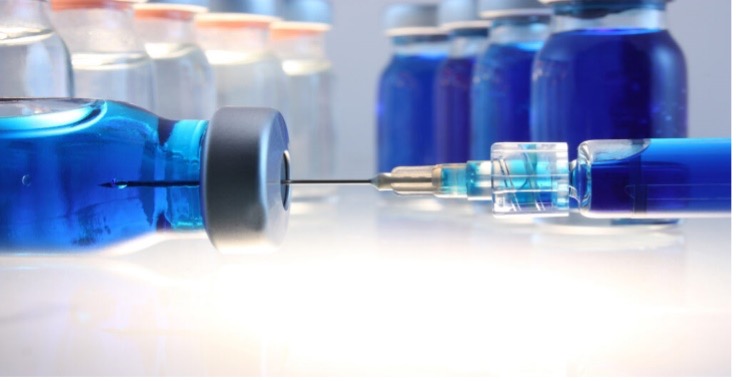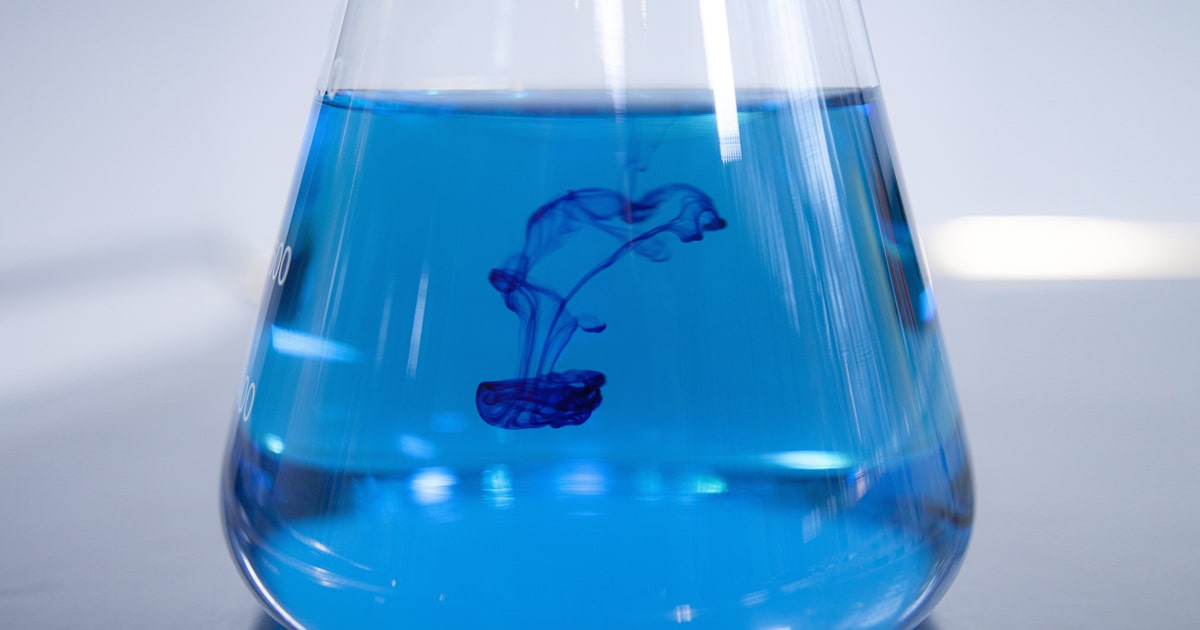METHYLENE BLUE
Cognitive and Mitochondrial enhancer. Can help delay cellular aging and may enhance key mitochondrial biochemical pathways. Can improve cellular and mitochondrial function and decreases the production of proteins linked to Alzheimer’s.
METHYLENE BLUE

Cognitive and Mitochondrial enhancer. Can help delay cellular aging and may enhance key mitochondrial biochemical pathways. Can improve cellular and mitochondrial function and decreases the production of proteins linked to Alzheimer’s.
METHYLENE BLUE
Your brain’s neurons rely almost entirely on mitochondria-derived energy. Failure of mitochondrial function can affect the rest of your body. But it’s particularly detrimental to your brain. This is where Methylene Blue steps in as one of the most important anti-aging and neurological disease-preventing biological agents.
Methylene Blue quickly crosses the blood-brain barrier. It improves mitochondrial efficiency and respiration, acts as an antioxidant, and increases brain cell lifespan, resulting in improved memory and mood. At low dosages, Methylene Blue is used to enhance mitochondrial function, increase cerebral blood flow, and acts as an antidepressant.
Methylene Blue improves memory by increasing brain cell respiration, or how the brain cell utilizes oxygen. It increases ATP production to provide more cellular energy for better overall brain function including cognition, mood, and memory.
Methylene Blue is an antioxidant. MB is a metabolic enhancer and an antioxidant. Methylene Blue binds to superoxide and reduces it to water. It stops the oxidative cascade at its very beginning before it gets a chance to do damage.
Low dose Methylene Blue may provide memory-enhancing effects, boosts cognition, can work as an antidepressant, assists in anti-aging, helps dementia, Huntington’s, and Alzheimer’s, is anti-microbial, and may even slow skin aging.
- Methylene Blue may have antidepressant effects
- Methylene Blue is a monoamine oxidase inhibitor (MAOI). It inhibits MAO-A more than MAO-B but inhibits both at large doses
- Methylene Blue can resist Alzheimer’s Disease
- Methylene Blue can help with anti-aging
- Methylene Blue may improve memory
- Methylene Blue can help you “feel young again”
- Methylene Blue helps eliminate stress and improves sleep
How Methylene Blue works

Your brain’s neurons rely almost entirely on mitochondria-derived energy. Failure of mitochondrial function can affect the rest of your body. But it’s particularly detrimental to your brain. This is where Methylene Blue steps in as one of the most important anti-aging and neurological disease-preventing biological agents.
Methylene Blue quickly crosses the blood-brain barrier. It improves mitochondrial efficiency and respiration, acts as an antioxidant, and increases brain cell lifespan, resulting in improved memory and mood. At low dosages, Methylene Blue is used to enhance mitochondrial function, increase cerebral blood flow, and acts as an antidepressant.
Methylene Blue improves memory by increasing brain cell respiration, or how the brain cell utilizes oxygen. It increases ATP production to provide more cellular energy for better overall brain function including cognition, mood, and memory.
Methylene Blue is an antioxidant. MB is a metabolic enhancer and an antioxidant. Methylene Blue binds to superoxide and reduces it to water. It stops the oxidative cascade at its very beginning before it gets a chance to do damage.
How Methylene Blue works
Your brain’s neurons rely almost entirely on mitochondria-derived energy. Failure of mitochondrial function can affect the rest of your body. But it’s particularly detrimental to your brain. This is where Methylene Blue steps in as one of the most important anti-aging and neurological disease-preventing biological agents.
Methylene Blue quickly crosses the blood-brain barrier. It improves mitochondrial efficiency and respiration, acts as an antioxidant, and increases brain cell lifespan, resulting in improved memory and mood. At low dosages, Methylene Blue is used to enhance mitochondrial function, increase cerebral blood flow, and acts as an antidepressant.
Methylene Blue improves memory by increasing brain cell respiration, or how the brain cell utilizes oxygen. It increases ATP production to provide more cellular energy for better overall brain function including cognition, mood, and memory.
Methylene Blue is an antioxidant. MB is a metabolic enhancer and an antioxidant. Methylene Blue binds to superoxide and reduces it to water. It stops the oxidative cascade at its very beginning before it gets a chance to do damage.
METHYLENE BLUE
Your brain’s neurons rely almost entirely on mitochondria-derived energy. Failure of mitochondrial function can affect the rest of your body. But it’s particularly detrimental to your brain. This is where Methylene Blue steps in as one of the most important anti-aging and neurological disease-preventing biological agents.
Methylene Blue quickly crosses the blood-brain barrier. It improves mitochondrial efficiency and respiration, acts as an antioxidant, and increases brain cell lifespan, resulting in improved memory and mood. At low dosages, Methylene Blue is used to enhance mitochondrial function, increase cerebral blood flow, and acts as an antidepressant.
Methylene Blue improves memory by increasing brain cell respiration, or how the brain cell utilizes oxygen. It increases ATP production to provide more cellular energy for better overall brain function including cognition, mood, and memory.
Methylene Blue is an antioxidant. MB is a metabolic enhancer and an antioxidant. Methylene Blue binds to superoxide and reduces it to water. It stops the oxidative cascade at its very beginning before it gets a chance to do damage.
Low dose Methylene Blue may provide memory-enhancing effects, boosts cognition, can work as an antidepressant, assists in anti-aging, helps dementia, Huntington’s, and Alzheimer’s, is anti-microbial, and may even slow skin aging.
- Methylene Blue may have antidepressant effects
- Methylene Blue is a monoamine oxidase inhibitor (MAOI). It inhibits MAO-A more than MAO-B but inhibits both at large doses
- Methylene Blue can resist Alzheimer’s Disease
- Methylene Blue can help with anti-aging
- Methylene Blue may improve memory
- Methylene Blue can help you “feel young again”
- Methylene Blue helps eliminate stress and improves sleep
Methylene Blue History
In 1891, German physician and Noble Prize recipient Paul Ehrlich pioneered the use of Methylene Blue in the treatment of malaria.
Ehrlich discovered that MB would quickly concentrate in the brain and selectively target diseased tissues in the body.
Methylene Blue is called “Magic Bullet” for this unique action.
Methylene Blue has since been used to treat dementia, cancer chemotherapy, malaria, methemoglobinemia, urinary tract infections, cyanide, and carbon monoxide poisoning.
Methylene Blue History
In 1891, German physician and Noble Prize recipient Paul Ehrlich pioneered the use of Methylene Blue in the treatment of malaria.
Ehrlich discovered that MB would quickly concentrate in the brain and selectively target diseased tissues in the body.
Methylene Blue is called “Magic Bullet” for this unique action.
Methylene Blue has since been used to treat dementia, cancer chemotherapy, malaria, methemoglobinemia, urinary tract infections, cyanide, and carbon monoxide poisoning.
How we age
As we live life, our brain chemistry, and metabolism changes.
- Mitochondrial energy levels decline
- Attention, memory, and mental agility decline
- Tau proteins and amyloid plaques clog the brain
- Free radicals damage brain cell mitochondria
- Cerebral blood flow declines
All of these changes can happen at any age. And are a product of the food we eat, what we drink, lifestyle habits, the air we breathe, and more.
How we age
As we live life, our brain chemistry, and metabolism changes.
- Mitochondrial energy levels decline
- Attention, memory, and mental agility decline
- Tau proteins and amyloid plaques clog the brain
- Free radicals damage brain cell mitochondria
- Cerebral blood flow declines
All of these changes can happen at any age. And are a product of the food we eat, what we drink, lifestyle habits, the air we breathe, and more.
Services
Policies
Contact Us
Orthomolecular Nutrition
and Wellness Center
9225 Ulmerton Rd., Suite 312
Largo, FL. 33771
Email:
orthomolecular1@gmail.com
Office:
727-518-9808


